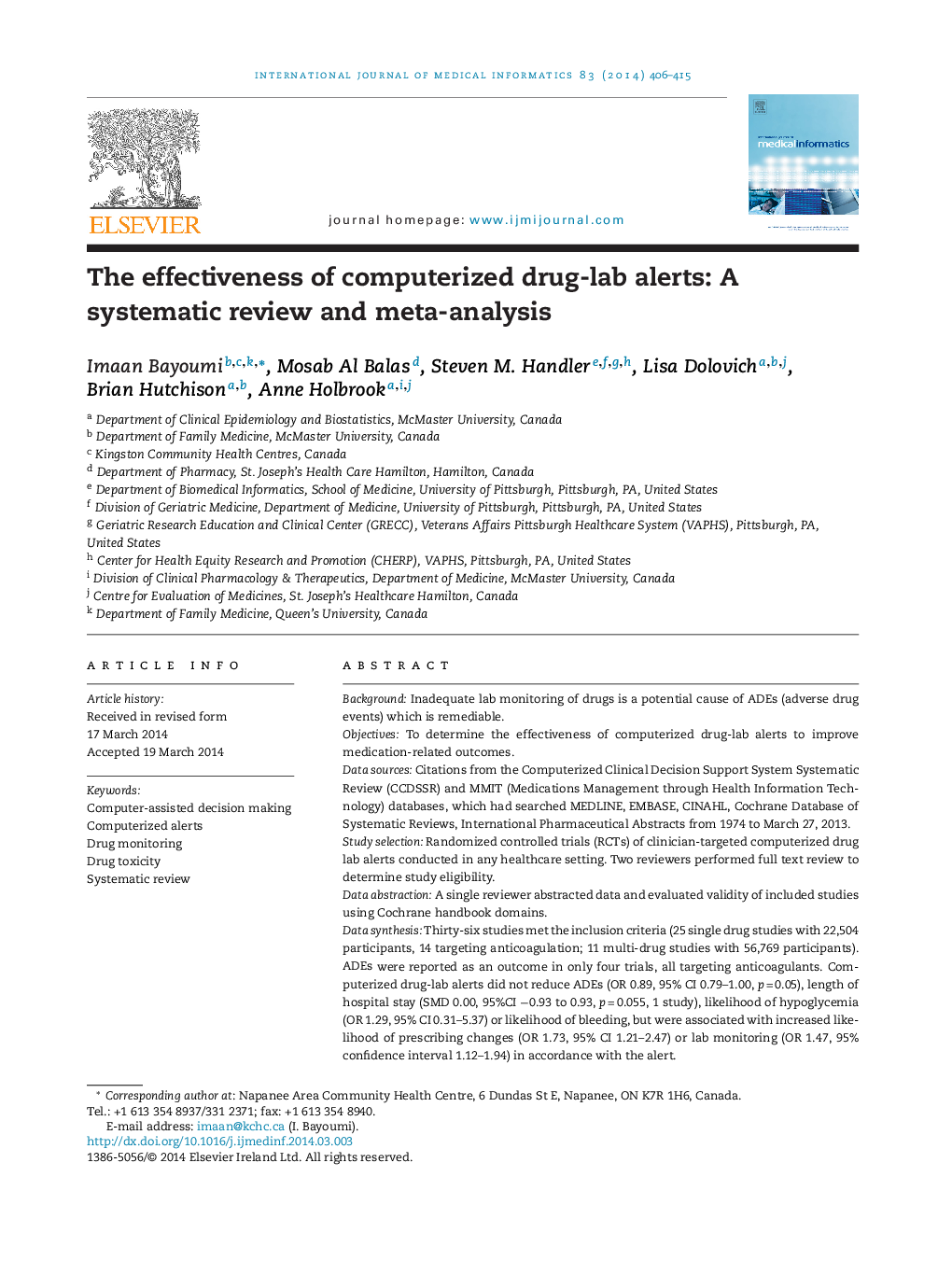| Article ID | Journal | Published Year | Pages | File Type |
|---|---|---|---|---|
| 516148 | International Journal of Medical Informatics | 2014 | 10 Pages |
•There is no evidence that computerized drug lab alerts improve clinically important outcomes.•Process outcomes improved but without evidence of clinical benefit.•No studies examined cost effectiveness.•Stronger evidence is needed prior to widespread implementation in electronic medical records.
BackgroundInadequate lab monitoring of drugs is a potential cause of ADEs (adverse drug events) which is remediable.ObjectivesTo determine the effectiveness of computerized drug-lab alerts to improve medication-related outcomes.Data sourcesCitations from the Computerized Clinical Decision Support System Systematic Review (CCDSSR) and MMIT (Medications Management through Health Information Technology) databases, which had searched MEDLINE, EMBASE, CINAHL, Cochrane Database of Systematic Reviews, International Pharmaceutical Abstracts from 1974 to March 27, 2013.Study selectionRandomized controlled trials (RCTs) of clinician-targeted computerized drug lab alerts conducted in any healthcare setting. Two reviewers performed full text review to determine study eligibility.Data abstractionA single reviewer abstracted data and evaluated validity of included studies using Cochrane handbook domains.Data synthesisThirty-six studies met the inclusion criteria (25 single drug studies with 22,504 participants, 14 targeting anticoagulation; 11 multi-drug studies with 56,769 participants). ADEs were reported as an outcome in only four trials, all targeting anticoagulants. Computerized drug-lab alerts did not reduce ADEs (OR 0.89, 95% CI 0.79–1.00, p = 0.05), length of hospital stay (SMD 0.00, 95%CI −0.93 to 0.93, p = 0.055, 1 study), likelihood of hypoglycemia (OR 1.29, 95% CI 0.31–5.37) or likelihood of bleeding, but were associated with increased likelihood of prescribing changes (OR 1.73, 95% CI 1.21–2.47) or lab monitoring (OR 1.47, 95% confidence interval 1.12–1.94) in accordance with the alert.ConclusionsThere is no evidence that computerized drug-lab alerts are associated with important clinical benefits, but there is evidence of improvement in selected clinical surrogate outcomes (time in therapeutic range for vitamin K antagonists), and changes in process outcomes (lab monitoring and prescribing decisions).
